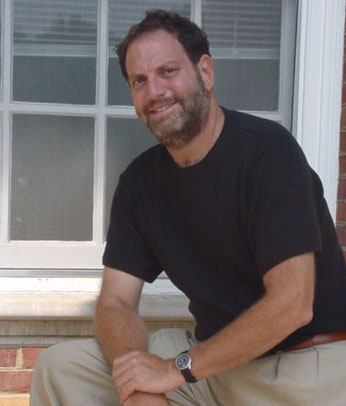 |
| Prof. Jordan A. Goodman, Chair, Physics Department |
By Jordan A. Goodman,
Physics Chair
Dear Readers,
As we begin another academic year here at Maryland Physics, I would like to take a moment to talk about the importance of mentoring our students. Once again, we have recruited a very bright group of young scientists with impressive talent and potential. The Maryland Physics curriculum - for both undergraduate and graduate students - works well to develop that talent and prepare students for a variety of career paths. However, to use the elements of the curriculum effectively, students need guidance from the Department, especially the faculty.
We already have a great Student Services team dedicated to counseling students. Each undergraduate is assigned a faculty advisor as soon as he/she declares physics as a major and each graduate student is assigned a faculty advisor before he/she registers for classes. Also, the close-knit atmosphere here in the Department encourages graduate student to undergraduate mentoring. The success of so many of our alumni in so many different career paths tells us that our efforts are working. However, I'd like us to do more.
Today, physicists have so many
careers options and are employed by a wide variety of careers. While many
of our alumni are pursuing the traditional career path into academia,
our graduates can also be found at government labs - such as Fermilab,
Goddard, Jefferson Lab and NIST- and premier corporate entities - such
as Intel, Raytheon, and Northrup Gruman. We also see our alumni using
their physics educations as patent attorneys, entrepreneurs, teachers,
consultants, engineers and more.
Whether we are faculty advisors, advising staff, instructors, teaching
assistants, or other graduate students in leadership roles - we all need
to be prepared to guide young students down any one of these paths. When
a student comes to us, we need to be able to think beyond what courses
will earn this individual a degree. We need to think "big picture"
about his/her future. We need to ask - and then answer - the right questions:
What skills will the student need to learn and/or develop? What is the
best undergraduate track to follow? What interpersonal, electronic and/or
computer skills are needed? Should they take electronics or the grad lab?
Should they take the shop course? What research experiences would benefit
the student? Also, encourage our undergraduates to get involved with SPS
(Society of Physics Students).
While it is usually easy for us
to advise those who are interested in following our own career path into
academia, it may be more difficult for us to prepare a student for industry
or government - areas with which most of us are less familiar. The American
Physical Society (APS) has some excellent resources about careers in physics
available at http://www.aps.org/jobs/guidance/student.html.
The National Academy of Sciences also publishes a handbook entitled "Advisor,
Teacher, Role Model, Friend: On being a Mentor to Students in Science
and Engineering" which can be found at http://www.nap.edu/readingroom/books/mentor/.
I strongly encourage you to visit these Web pages. The more knowledgeable
we are, the more we can benefit our students.
In recent years, academia has begun to refer to students as "customers"
to show their need for personal attention. I would like us to all remember
that our students are even more than our customers; they are also our
most important products. Investing in these products, through initiatives
like quality mentorship, is investing in the future of our Department
and our University.
Sincerely,
![[ Goodman's Sig ]](../template_photos/goodsig.jpg)
Jordan A. Goodman
Chair, Physics Department


